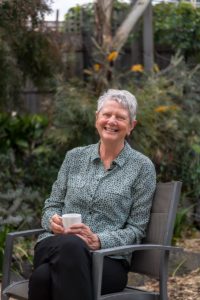 It started with a friendship. High school science teacher Bernie Maguire was in her mid-20s when her friend Linda Parlane encouraged her to apply for a part-time job coordinating volunteers at the Conservation Council of Victoria (CCV).
It started with a friendship. High school science teacher Bernie Maguire was in her mid-20s when her friend Linda Parlane encouraged her to apply for a part-time job coordinating volunteers at the Conservation Council of Victoria (CCV).
It was 1985, and Linda and the East Gippsland Coalition (EGC) were waging a battle to save native forests from woodchipping. Volunteers were critical to the success of that campaign and others supported by the CCV.
“I was coming in raw,” says Maguire. She set off on a recruitment drive, drawing up leaflets and dropping them in libraries around Melbourne. People were keen to become active after the successful Franklin River campaign, and soon she had a box of cards on her desk with volunteers’ contact details.
Volunteers were essential to the organisation. “All fundraising, any direct mail that we sent out, all the newsletters, were all driven by huge amounts of volunteer input,” says Maguire.
Every few weeks there would be an envelope stuffing drive. After two years, Maguire was appointed membership officer and became involved in fundraising. Money at CCV was often tight, she
remembers. “We used to spend a lot of energy trying to see how we were going to balance the books.”
Maguire says the CCV learnt from the success of the EGC, where campaigning had raised the organisation’s profile and led to major donors making larger donations. She drew on its supporter list to boost the CCV’s, which she used for phone-calling drives, to run raffles and sell wine in reusable bottles.
In the late 1980s, Maguire became co-manager at CCV with Linda Parlane and Harry Barber. It was fantastic to be involved in something so meaningful,” she says.
“It was fantastic to be involved in something so meaningful.”Click To TweetWork, politics and personal life blurred. She made enduring friends and met her partner, Peter Falconer, there. Their son, Kieran, took his first steps at the meeting where the CCV decided to change its name to Environment Victoria.
The organisation became more active on urban issues, especially the issue of climate change – or the greenhouse effect, as it was called. Maguire says, “It was such a major scare – it makes other issues look small. It captured the public’s concern, and that translated into issues people in the organisation were keen to focus on. How are we going to translate that public concern into political action and encourage people to support the work we want to do?”
That question would dominate the decades to come.
Photo: Doug Gimsey